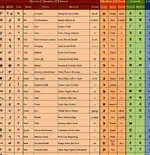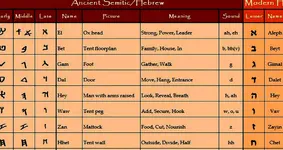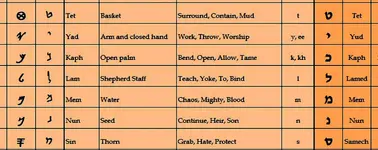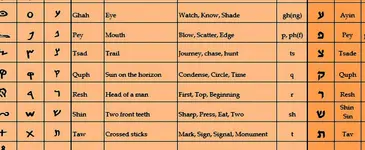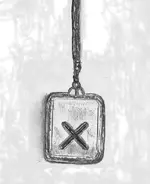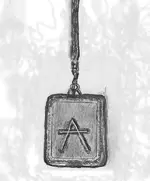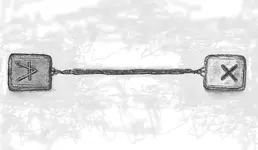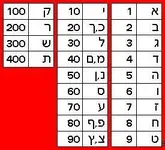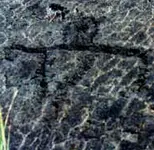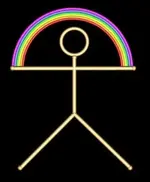That's alpha or aleph to Omega or Tau. I have seen them on old monuments. Beginning to end. Enter Christianity and they can be one in the same.
Urim and Thummin are the Hebrew words for "Lights and Perfection" which in the Apocalyse Christ said, "I am Alpha and Omega, the beginning and the end, the first and the last."
The Alpha and Omega is the Greek way of saying A-Z or in Hebrew Aleph (El) to Tav (Taw) transliterated A (ah, eh)- T (t).
On a Jewish Encyclopendia website, I remember seeing info claiming that the Urim and Thummin was also called "The Lord is mighty in battle" probably a nickname. The page is so long, takes time to get through, this is the part about the yes/no answers.
Mode of Consultation. The oracle was consulted in the following manner: The high priest donned his eight garments, and the person for whom he sought an answer stood facing him, while he himself turned toward God (
i.e., the
Shekinah). It was necessary that the question should be brief and that it should be pronounced, but not aloud; while the answer was a repetition of the query, either in the affirmative or in the negative. Only one question might be asked at a time; if more than one were put, the first alone received a reply. The answer was given by the letters of the names of the tribes which were engraved upon the high priest's breastplate (Yoma 73a, b; Yer. Yoma 44c; Sifre, Num. 141). If the question was not distinctly worded, the reply might be misunderstood, as in Judges xx. 18
et seq. (Sheb. 35b; Yoma 73b). A decision by the oracle might be demanded only by the king, or by the chief of the highest court, or by a prominent man within the community, such as a general of the army, and it might be sought only for the common weal (Yoma 7, end, 73a: "one anointed for war"; Targ. pseudo-Jonathan to Ex. xxviii. 30: "in case of need"). According to Targ. pseudo-Jonathan to Ex. xxviii., the breastplate was used to proclaim victory in battle. It was necessary that the high priest who questioned the oracle should be a man upon whom the Shekinah rested (Yoma 73b).
link-Jewish Ecyclopedia---URIM AND THUMMIM


